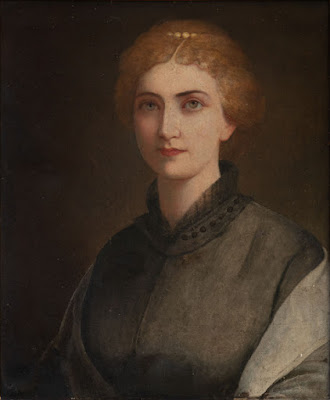The main character of Bonner's story is F. Townsend Britton, a career diplomat of fifty-odd years who carefully charts his disappearance from an authoritative, rich wife to become the widowed, retired, middle-western Liewellyn Jones, a good enough impersonation that fools everyone except Terry, a girl he meets in Cincinnati. To escape further entanglements, Jones retreats to a town in South Carolina where there is an establishment called Redbird Inn. He begins to sketch as a pastime before he fully realizes his serious ambition to become an artist. Europe is one step further from Terry, and in Paris, he finds the ideal house and a perfect maid who is also the model and the mistress to best serve his talent. His bold naturalism attracts the attention of a leading dealer and collectors, among them his wife. She retracts her vindictive threat to expose him, and finally, he is secure in the life he has made for himself, which now allows room for Terry.
The South Carolina town in Bonner's story was inspired by Summerville, and the Redbird Inn was a reflection of the well-known Squirrel Inn he wintered at as a guest.Squirrel Inn opened around 1912. It became known for its hospitable atmosphere and distinctive cuisine. In 1941, Jeanne and Eugene Sutter bought the inn. Under their ownership, it received a nomination in 1957 for being one of the top forty rural inns in the nation. It continued to be a noted inn with fine cuisine until 1966. The building was renovated for condominiums in 1979.
Helen and Raven Lewis had the Squirrel Inn built, but Helen is seldom mentioned with her sister Raven as part-owner of the inn. In fact, the two sisters were inseparable. Lifelong companions, Helen having never married left her entire estate upon her death to Raven.
Helen (1852-1933) and Raven (1862-1940) were the daughters of John Williams and Anna Raven Vander Horst Lewis, a prominent Charleston family with a rich history who lived at 28 Chapel Street in Charleston. They were the great-great-granddaughters of New Yorker Lewis Morris, a signer of the Declaration of Independence; great-granddaughters of Arnoldus Vander Horst, governor of South Carolina (1794–95); and granddaughters of Elias Vander Horst, a signer of the South Carolina Nullification Ordinance of 1832. They spent their cushy childhood dividing their time between the home in Charleston and their father's rice plantation, Ravenswood, on the Ashepoo River. Their fairy tale life would end.
 |
| 28 Chapel Street |
The Civil War erupted and Charleston was in the Union's crosshairs. The family remained in the city and vicinity until January 1865. With many of the buildings in ruins, they fled to Columbia with her mother, grandmother, two sisters, a brother, and a faithful family servant. When General Sherman's troops arrived in Columbia, they witnessed the burning of the city. Their mother, advanced in pregnancy, died there after giving birth to a son. The grandmother, Anne Elliott Morris Vander Horst, returned to Charleston to seek aid, leaving the children in the care of a black woman. Fearing the constant danger in Columbia, the woman took the children to Aiken, where they had cousins. According to family tradition, they made the journey on foot. During the 1890s, Helen and Raven established residence in Asheville, where they taught music and ran a boarding house.
 |
| Portrait courtesy of Clint McCrory-Mountain Xpress |
The more famous of the two, tall and stately Helen was a force to be reckoned with during the 1890s in the women's suffrage movement in the South and organized the first woman's rights association in North Carolina. While in Asheville during the year 1894, she sponsored a public meeting on women suffrage, the first-ever held in the state. An equal suffrage association was organized with Helen as president.
The contemporary thinking of the day "framed women as intellectually unsuited to vote, and when not questioning women's smarts, opponents of the suffrage movement pointed to the unruly nature of politics itself as a reason to keep women clear of the process." Helen spoke out against such rebuttals and championed for equal consideration regarding women's pay. Ashville's Daily Citizen was so impressed by one of her addresses, it wrote in November of 1894: "It is very seldom that audiences in Asheville are addressed by a lady as 'fellow citizens.' That was the beginning of Miss Lewis' address and it sounded well." Her crusading zeal for woman's rights set its sights on other states. In 1895, she was part of a group of women who toured South Carolina on behalf of "votes-for-women."
Her public persona did not go unnoticed. In 1896, she was surprised to learn that she had received five votes for the office of representative in the U.S. Congress even though she was not a candidate for that or any other post. The votes came from an unlikely source. Five men, for reasons undisclosed, voted for her, which was unheard of in the 1800s. Three years later, she announced her candidacy for the position of superintendent of waterworks for the city of Asheville. She became the first woman in North Carolina to seek an elective office.
Helen and Raven gave up their home in Asheville and returned to Charleston in 1906. In 1912, they established the Squirrel Inn in nearby Summerville at the height of its Golden Age. In 1923, Helen bought a house in Asheville. The sisters spent their summers there during the next decade.
A contemporary described Helen Morris Lewis as a woman of "queenly beauty and grace." She was an accomplished public speaker who often received standing ovations from her audiences. She was also a talented musician and a writer who procured local notoriety from her often published articles in the Charleston News and Courier.




No comments:
Post a Comment